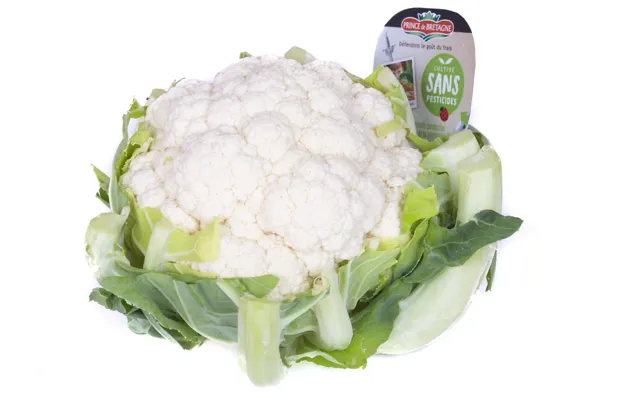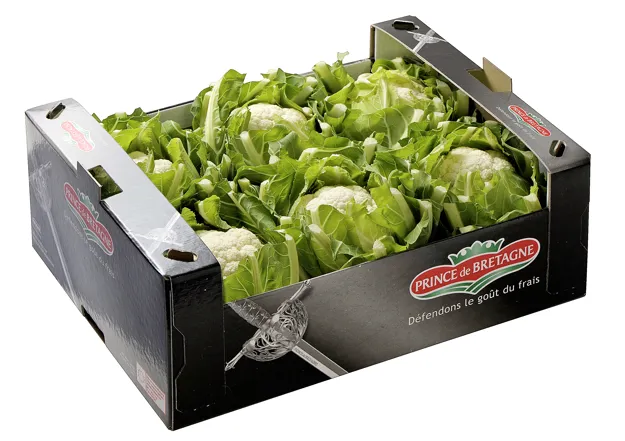Prince de Bretagne will add cauliflower to its range without synthetic pesticides. The launch is expected for this winter season. “Our producers are committed not to use synthetic pesticides from the time the cauliflower is planted until it is harvested,” explains Géraldine Barillot, head of the cabbage products at Prince de Bretagne.
The range “grown without synthetic pesticides” of Prince de Bretagne was launched in 2017 with the tomato. Other products like the broccoli, red kuri squash, traditional shallot and Romanesco cabbage followed in 2018 and 2019. “Our volumes are still fairly confidential compared to the conventional products, but we feel that there is an interest. Several actors of the market are taking similar initiatives.”

Cauliflower grown without pesticides
For the moment, the cauliflower cultivated without pesticides will be mainly intended for the French market, like most of the products from this range. The red kuri squash without synthetic pesticides is produced in sufficient quantity to export.
Contract sales
Although Prince de Bretagne is known for its auction sales, there was also a high demand from its clients to set up contract sales. “In order to meet this demand, we set up contract sales all year round. In high season, we even do contract sales by the week. This way, some clients can secure their purchases in volumes at a set price.” But the cauliflowers are also available for the auction sales daily.
Consumption is changing
The company from Brittany has been making great efforts to promote the consumption of cauliflowers for years. For this 2019-2020 season, Prince de Bretagne will launch a campaign again around cauliflower flour. “Nowadays, it is the best way to revive the cauliflower consumption and to make it more appealing to children,” explains Géraldine. Another product that the cooperative will promote is the cauliflower in the baby format. “It is a product that we already had, but given the evolution of households in France and abroad, we will promote it more.”
The baby cauliflower, at 4 inches instead of 6.3 inches, is better adapted to urban households of 1 to 3 people. “The large cauliflower weighs 4.6 lbs, which is heavy for the consumers who do not have a car. It also represents a large quantity to consume. The smaller format fits better with the anti-waste trend.”

The baby cauliflower culture is a particular crop. “They are planted closer together so that the pieces do not grow too much,” explains Géraldine. “It all depends on the know-how of our producers. They determine the caliber of the cauliflower by touching its head. If it is a little warm and humid, cauliflowers can grow very fast. The producers must determine the right moment to cut the vegetable.”
Géraldine recalls that French cauliflower producers do not irrigate in the winter, unlike in Spain and Italy. “Moreover, we have no storage. The cauliflowers are harvested the day before, then delivered to the site and shipped within 24-48 hours. In some other countries, they are sometimes stored for several weeks and unlocked depending on prices. Here, all that we harvest is shipped. Buying Prince de Bretagne cauliflower is a guarantee of freshness and high quality.”
103 million heads
According to predictions, Prince de Bretagne should reach quite a stable total production compared to last year, with 103 million heads. 100% of the Prince de Bretagne cauliflowers are certified Global CAP and comply with the GRASP module.
For more information: 
Géraldine Barillot
Prince de Bretagne
geraldine.barillot@princedebretagne.com
www.princedebretagne.com
